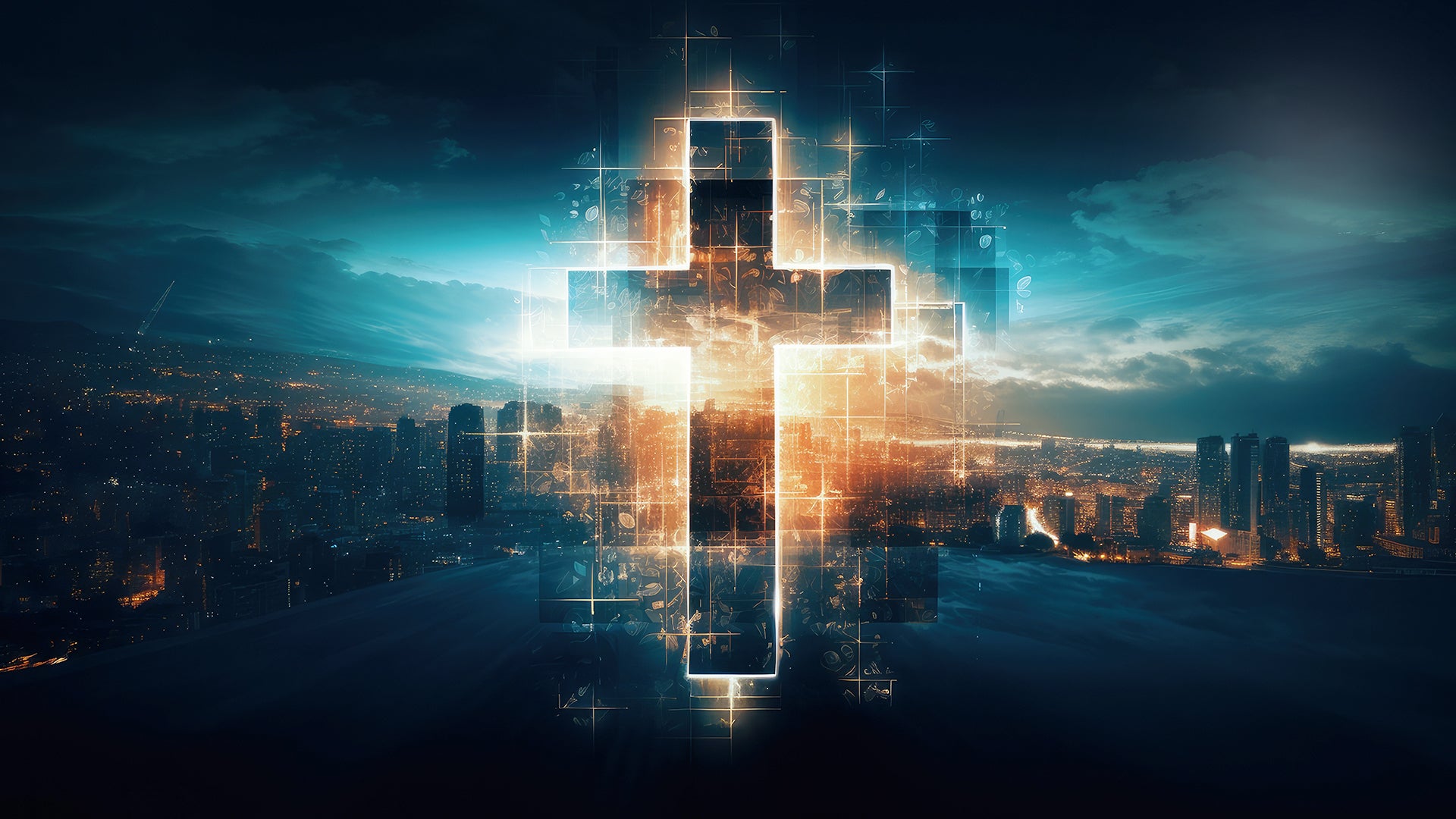“Christians need a game plan” for AI and the church, and these people are on board
As artificial intelligence shapes more aspects of life, its integration into belief systems raises new theological questions, and experts say churches need to prepare.
Barna Group, in collaboration with Gloo – the faith-based technology platform that connects people with local churches and others – surveyed church leaders to find out what they think about AI and the church.
“One of the questions we asked is, 'Do you believe God can work through AI?' And we found a really large number of pastors who say, 'God CAN work through AI,'” said lead researcher Ashley Ekmay of Barna Group.
Ekmay and other partners hope the survey will help church leaders be better informed about peer sentiment and hope it will spark a conversation that advances debate in the church about the responsible use of artificial intelligence. The prevalence of AI in the digital world means that it exists where you might least expect it.
“(AI) is everywhere, it’s on social media – if you use Netflix, it’s in your home – digital assistants,” Ekmay said.
As AI quietly integrates itself into almost every aspect of our lives, researchers like Ekmay say it's time for the church to join the discussion. That's why they're exploring what Christians think about AI and its use in the church.
While acknowledging that God can work through AI, Ekmay said many congregants don't particularly trust AI in the church, saying pastors in particular are the ones who are most worried.
The results of the study found that one in ten adults in the US frequently use artificial intelligence. In church, more than half of churchgoers believe that AI is not suitable for use in church. Research suggests that this indicates significant hesitation or skepticism about its role in religious contexts.
“There’s nothing new under the sun,” preachers would say, and God doesn’t wonder about AI,” said Gloo Chief Solutions Officer Brad Hill.
***Please subscribe to the CBN newsletter and download the CBN News app to ensure you continue to receive the latest news from a distinctly Christian perspective.***
Hill sees AI as the key to transforming Gloo's workflows and connecting people with local churches.
“We previously used a manual process to review a manual request and match it to the correct church,” Hill said. “So we reduced this (process) from about three hours to milliseconds.”
Gloo is investing around $25 million to implement AI in the church, including research and development. Hill says the initiative will enable the church to responsibly manage and use the AI landscape. One of its first components will be a first-of-its-kind hackathon, bringing together US developers to help advanced AI-based technology serve the faith ecosystem.
Hill and Ekmay agree that if your church isn't talking about AI, it's time to come up with a game plan.
“We've really tried to invite pastors into a conversation that they may or may not want to have at times, because it's understandable to the untrained eye that AI just feels like technology, and that's another thing you can learn said Hill. “Pastors regularly tell us that they sometimes feel like they have to become experts in everything and everyone.”

Not only are churches and businesses at risk of falling behind, our government is also struggling to keep up with this fast-moving technology. Both the House and Senate are advancing bills that would examine AI accountability and risk. So far they have only obtained commitments from AI companies to ethical self-regulation.
Recently, the European Union is expected to unveil the world's first AI regulations. The AI law will use a risk-based system and set clear standards for AI developers. The proposal is currently in the EU legislative process. Once passed, it could serve as a model for similar regulations around the world.
Meanwhile, the Biden administration is asking Congress for $2.6 billion to fund a program that would make the government's AI resources more widely available to researchers.
Dr. Subodh Kumar, a data scientist at Temple University, sees the lack of regulation as a combination of the need for Congress to better understand AI while simultaneously granting it freedoms to thrive in areas of national security and economic development.
“Both policymakers and organizations have equal responsibilities (in terms of regulation),” said Dr. Kumar. “Both must hold themselves to the highest standards.”
In the meantime, while AI developers regulate themselves, users must do the same, protecting not only themselves, but more importantly, their children.
“Parents share too much information about their children,” said Dr. Kumar. “And as users, the best way we can protect ourselves right now is to get this under control.”
Source: www2.cbn.com

